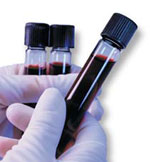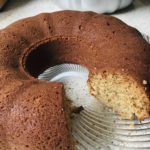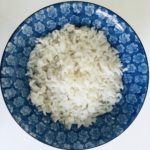 The blood tests for celiac are not the final say on whether you should be on a gluten-free diet or not. It is a fact that these tests can produce false negatives — meaning that you could have celiac disease, or at least a gluten intolerance, even if the blood test says you don’t. However, I still believe that if you are considering starting a gluten-free diet , you should go ahead and get the blood test for celiac disease before starting the diet (because a gluten-free diet can affect the test results).
The blood tests for celiac are not the final say on whether you should be on a gluten-free diet or not. It is a fact that these tests can produce false negatives — meaning that you could have celiac disease, or at least a gluten intolerance, even if the blood test says you don’t. However, I still believe that if you are considering starting a gluten-free diet , you should go ahead and get the blood test for celiac disease before starting the diet (because a gluten-free diet can affect the test results).
Why do I recommend this knowing that the tests are not accurate? Because, if the test is positive for celiac… done. You have it. No more wondering if you are gluten-intolerant. No more questioning the diet and having gluten once in a while because you don’t know for sure. No more trying to explain to your family and friends why you are on this strange, self-imposed (in their eyes) diet. And don’t forget that celiac disease is genetic — so if you have it, it is important information that your relatives need to know. If you have celiac according to mainstream medicine, you can start your gluten-free diet for life, and move on.
Now, what if it is negative? I have always explained to people that someone might test negative on the celiac disease blood test because there hasn’t been enough damage yet to produce enough antibodies in the blood to register positive on the test. If this theory is true, then damage continues as long as the person is eating gluten — for many years, perhaps — until there finally is enough damage to produce positive results on the test. By then, a person could have suffered ill health of the stomach, brain, skin, joints, etc., or even have developed another autoimmune disease (diabetes, arthritis, or cancer for example).
Celiac disease can be “turned on” (symptoms or intestinal damage starts to show) at any age. I always wonder how many years it has been in the making in each person, damaging little by little. I had symptoms as a child (asthma, vitiligo), and then more symptoms that “turned on” in my early 20s (stomach aches, declining vision, anemia, leg cramps), until finally I was diagnosed at age 32. Who knows if I would have tested positive as a child, or even in my 20s.
Unfortunately, too many people, especially children, are being turned away from a gluten-free diet as a cure for a range of health problems because of these negative test results (and doctors’ reluctance to “impose” a gluten-free diet on someone without proof of celiac disease). The wonderful website Celiac.com recently published an article by Dr. Rodney Ford, a gastroenterologist who runs the Children’s Gastroenterology and Allergy Clinic in New Zealand. It is entitled “How Early Can Celiac Disease Be Diagnosed?” — I recommending reading it. He says that people can react to gluten long before the gut becomes obviously damaged by gluten (but he says that certain blood tests are good predictors of celiac disease).
And PLEASE read the comments under Dr. Ford’s article from readers themselves — they serve as evidence that the celiac blood tests are not the end of the line!







John Hill says
Good article! I would like to point out that it’s also possible to have non-celiac reaction (intolerance) to gluten or grains.
Recently I discovered that I feel much better when I don’t eat any gluten. To be on the safe side I avoid all the grains also at the moment (talk with your doctor before eliminating grains from your diet!).
My celiac blood tests were negative and so was biopsy. I wanted to try gluten elimination diet because everything else was ruled out during the last 12 years.
I never had any serious gastrointestinal symptoms, but I have experienced persistent depression, anxiety, low motivation and low tolerance to physical exercise.
Within a month after starting gluten/grain exclusion all the symptoms have disappeared…
Anne says
Wonderful advice. There seems to be a growing recognition of non-celiac gluten sensitivity. I don’t know if I have flattened villi because my doctors refused to test me. I am now glad they did this. If I had tested negative on blood and biopsy I may have never tried the GF diet. Instead I used Enterolab to give me the proof that I need to be GF for life.
I am in my 60’s and I will always wonder how my life would have been different had I known about the damage gluten can cause. Going gluten free lifted a lifelong depression. I did not even know I was depressed until I found how good one can feel off of gluten. Peripheral neuropathy so much better. I have a very long list of health improvements that I can contribute to getting gluten out of my life.
I have met many people who tested negative on blood tests and/or blood and biopsy but found they improved with a GFdiet. Sadly, there are many who look no further when the test are negative even though their symptoms scream gluten sensitivity.
Another physician who recognizes that gluten sensitivity is much more than CD is Dr Scott Lewey. http://thefooddoc.blogspot.com/
Jeanne says
Good article,
When my thyroid stopped working 10 years ago, I immediately asked to be tested for celiac disease because my mother had been diagnosed with it (finally!!!) a few years earlier. I had done some research and knew that poor thyroid function was one of the many complications that showed up in conjunction with gluten intolerance. My blood test was negative, but the saliva test was positive and I went on a gluten free diet immediately. A couple years later I took an ELISA test and my blood had gluten antibodies in that test.
At the time I took the blood and saliva tests I was not showing any of the classic signs of gluten intolerance. My mother had been an undiagnosed textbook case for many years so I knew the symptoms well.
I strongly recommend erring on the side of avoiding gluten if there is any possiblity that an individual is gluten intolerant. While the physical problems are very serious, what I remember most about my mother’s years as an undiagnosed celiac was that she was in a constant battle with emotional exhaustion.
The positive saliva test was enough for me to change my diet immediately. Now if I accidentally get some gluten in my diet; I have classic symptoms.
I was very lucky to be diagnosed early and to know how important it was to avoid all gluten. It is tough at the start to make the adjustments to the diet. There is a pretty big learning curve when it comes to finding out what to avoid and what to eat; but after getting past that; it’s well worth it.
While a biopsy of the small intestine and blood tests are relatively well known; I’ve never talked to anyone else who had the saliva test. It would be interesting to learn whether there are other tests for gluten intolerance that could be used, how reliable they are, and whether they might be better able to diagnose the disease in its early stages.
alison says
John, Anne and Jeanne,
Thanks for your comments – let’s hope more people in the medical community begin to recognize that gluten can be damaging to a person’s health even if it is not considered “celiac” by the standard definition. I was disappointed to read this comment about Dr. Joseph Murray in a Chicago Tribune article: “If celiac is ruled out, Murray said there is little or no evidence to support a connection between gluten and other ailments, including autism.” I really don’t understand the disconnect here!
Linda Matenky says
4/14/08
I have an identical twin sister, 48 years old. I was diagnosed in 2004. Being first in family, no one knew of GF diet, but I went to local support in metroDetroit, MI and new of National Assoc. My point is that we have separate doctors. I went through with GI doc, with biopsy after blood work, but twin sister won’t get biopsy. She has two celiac panels done, with two regular doctors recommending the GF diet.
I don’t worry too much of our older sister who’s not interested in testing. But my twin has decided to try GF diet now. I believe in the blood work being positive along with GI symptoms she has as being enough for her to explore the diet.
And if she feels better with it, she has me has an identical twin for high probability. Her lower GI colonoscopy did not show any major ailments, also.
Elaine says
there is a better way for gluten intolerance testing, check out Dr. Fine’s website at http://www.enterolab.com for more information